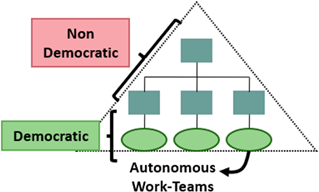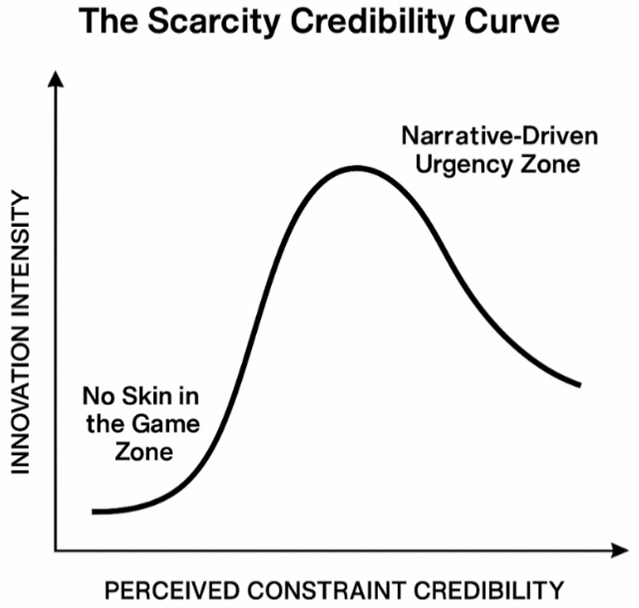
Asia Pacific Academy of Science Pte. Ltd. (APACSCI) specializes in international journal publishing. APACSCI adopts the open access publishing model and provides an important communication bridge for academic groups whose interest fields include engineering, technology, medicine, computer, mathematics, agriculture and forestry, and environment.


Technology integration in supply chain management: A systematic literature review on driving marketing success and efficiency
Vol 2, Issue 1, 2025
Download PDF
Abstract
This study examines how supply chain management (SCM) uses information technology (IT) and how that integration affects marketing effectiveness. IT plays a critical role in improving supply chain management (SCM) procedures as organisations aim for operational excellence in a world going digital. The current body of knowledge regarding the connection between IT integration in supply chain management (SCM) and marketing outcomes is compiled in this study through the use of a systematic literature review (SLR). Important conclusions show that using IT solutions, including cloud computing and advanced analytics, greatly enhances the communication, accessibility, and reactivity of data in marketing initiatives. In order to maximise the allocation of marketing resources and drive client interaction, the conversation highlights the revolutionary potential of IT. The study ends with proposals for additional research to examine the changing landscape of IT in SCM as well as tips for practitioners.
Keywords
References
1. Gunasekaran A, Subramanian N, Rahman S. Big data in operations and supply chain management: Trends and future directions. International Journal of Production Research. 2021; 59(6): 1790-1800.
2. Kamble SS, Gunasekaran A, Sharma R. A framework for implementing Industry 4.0 in manufacturing: A case study approach. International Journal of Production Research. 2020; 58(20): 6448-6464.
3. Amellal I, Amellal A, Seghiouer H, et al. An integrated approach for modern supply chain management: Utilizing advanced machine learning models for sentiment analysis, demand forecasting, and probabilistic price prediction. Decision Science Letters. 2024; 13(2024): 237-248.
4. Wang Y, Gunasekaran A, Ngai EWT. Big data in logistics and supply chain management: A review and future research directions. International Journal of Production Research. 2022; 60(6): 1853-1871.
5. Chae B. The role of information technology in supply chain management: A review and future directions. International Journal of Production Economics. 2021; 229: 107843.
6. Zhang Y, Zhao X, Zhang Z. The impact of IoT on supply chain management: A literature review. Supply Chain Management: An International Journal. 2023; 28(1): 15-31.
7. Hazen BT, Boone CA, Ezell JD, et al. Data quality for data science, predictive analytics, and big data in supply chain management: An introduction to the problem and suggestions for research and applications. International Journal of Production Economics. 2020; 250: 107636.
8. Chaffey D, Ellis-Chadwick F. Digital marketing: Strategy, implementation and practice, 7th ed. Pearson Education; 2019.
9. Li H, Chen X, Sun Y. Data privacy and security issues in the era of big data: A comprehensive review. Journal of Computer Information Systems. 2021; 61(1): 1-9.
10. Mohammed A, Katt M. Social media analytics for marketing decisions: A framework and future research agenda. Journal of Marketing Management. 2022; 38(3-4): 339-361.
11. Li H, Li Y, Liu Y. The impact of big data analytics on supply chain performance: The mediating role of supply chain agility. Journal of Business Research. 2021; 124: 681-691.
12. Chae B. Supply chain management and technology: A review and future directions. International Journal of Production Economics. 2021; 232: 107963.
13. Kumar A, Singh R, Gupta R. Digital transformation in supply chain management: A literature review and future directions. International Journal of Production Research. 2022; 60(12): 3725-3752.
14. Lin X. Network Security Technology of Supply Chain Management Based on Internet of Things and Big Data. Ahmad S, ed. Computational Intelligence and Neuroscience. 2022; 2022: 1-12. doi: 10.1155/2022/7753086
15. Tan WC, Sidhu MS. Review of RFID and IoT integration in supply chain management. Operations Research Perspectives. 2022; 9: 100229. doi: 10.1016/j.orp.2022.100229
16. Alomar MA. Performance Optimization of Industrial Supply Chain Using Artificial Intelligence. Bhardwaj A, ed. Computational Intelligence and Neuroscience. 2022; 2022: 1-10. doi: 10.1155/2022/9306265
17. Baryannis G, Validi S, Dani S, et al. Supply chain risk management and artificial intelligence: state of the art and future research directions. International Journal of Production Research. 2018; 57(7): 2179-2202. doi: 10.1080/00207543.2018.1530476
18. Belhadi A, Kamble S, Fosso Wamba S, et al. Building supply-chain resilience: an artificial intelligence-based technique and decision-making framework. International Journal of Production Research. 2021; 60(14): 4487-4507. doi: 10.1080/00207543.2021.1950935
19. Dash R, Rebman C, Kar UK. Application of Artificial Intelligence in Automation of Supply Chain Management. Journal of Strategic Innovation and Sustainability. 2019; 14(3): 43–53.
20. Dumitrascu O, Dumitrascu M, Dobrotǎ D. Performance Evaluation for a Sustainable Supply Chain Management System in the Automotive Industry Using Artificial Intelligence. Processes. 2020; 8(11): 1384. doi: 10.3390/pr8111384
21. Fosso Wamba S, Queiroz MM, Guthrie C, et al. Industry experiences of artificial intelligence (AI): benefits and challenges in operations and supply chain management. Production Planning & Control. 2021; 33(16): 1493-1497. doi: 10.1080/09537287.2021.1882695
22. Hassouna M, El-henawy I, Haggag R. A Multi-Objective Optimization for Supply Chain Management using Artificial Intelligence (AI). International Journal of Advanced Computer Science and Applications. 2022; 13(8). doi: 10.14569/ijacsa.2022.0130817
23. Helo P, Hao Y. Artificial intelligence in operations management and supply chain management: an exploratory case study. Production Planning & Control. 2021; 33(16): 1573-1590. doi: 10.1080/09537287.2021.1882690
24. Kersten W, Blecker T, Ringle CM. Artificial Intelligence and Digital Transformation in Supply Chain Management: Innovative Approaches for Supply Chains. Hamburg International Conference of Logistics. 2019; 470–482.
25. Luo S, Xing M, Zhao J. Construction of Artificial Intelligence Application Model for Supply Chain Financial Risk Assessment. Scientific Programming. 2022; 2022: 1-8. doi: 10.1155/2022/4194576
26. Nahr GJ, Nozari H, Sadeghi ME. Green supply chain based on artificial intelligence of things (AIoT). International Journal of Innovation in Management, Economics and Social Sciences. 2021; 1(2): 56-63. doi: 10.52547/ijimes.1.2.56
27. Pournader M, Ghaderi H, Hassanzadegan A, et al. Artificial intelligence applications in supply chain management. International Journal of Production Economics. 2021; 241: 108250. doi: 10.1016/j.ijpe.2021.108250
28. Toorajipour R, Sohrabpour V, Nazarpour A, et al. Artificial intelligence in supply chain management: A systematic literature review. Journal of Business Research. 2021; 122: 502-517. doi: 10.1016/j.jbusres.2020.09.009
29. Khatua A, Khatua A, Chi X, et al. Artificial Intelligence, Social Media and Supply Chain Management: The Way Forward. Electronics. 2021; 10(19): 2348. doi: 10.3390/electronics10192348
30. Alshammari I, Parimala M, Ozel C, et al. Spherical Linear Diophantine Fuzzy TOPSIS Algorithm for Green Supply Chain Management System. Journal of Function Spaces. 2022; 2022: 1-12. doi: 10.1155/2022/3136462
31. Duan Z. Prepayment Model of Supply Chain Financing Based on Internet of Things and Machine Learning Algorithm. Computational Intelligence and Neuroscience. 2022; 2022: 1-12. doi: 10.1155/2022/9320692
32. Duc DN, Nananukul N. A Hybrid Methodology Based on Machine Learning for a Supply Chain Optimization Problem. Journal of Physics: Conference Series. 2020; 1624(5): 052022. doi: 10.1088/1742-6596/1624/5/052022
33. Lee YH, Golinska-Dawson P, Wu JZ. Mathematical Models for Supply Chain Management. Mathematical Problems in Engineering. 2016; 2016: 1-4. doi: 10.1155/2016/6167290
34. Lin H, Lin J, Wang F. An innovative machine learning model for supply chain management. Journal of Innovation & Knowledge. 2022; 7(4): 100276. doi: 10.1016/j.jik.2022.100276
35. Wei Y. A Machine Learning Algorithm for Supplier Credit Risk Assessment Based on Supply Chain Management. International Transactions on Electrical Energy Systems. 2022; 2022: 1-11. doi: 10.1155/2022/4766597
36. Kishore A, Aeri M, Grover A, et al. Secured supply chain management system for fisheries through IoT. Measurement: Sensors. 2023; 25: 100632. doi: 10.1016/j.measen.2022.100632
37. Pal K, Yasar AUH. Internet of Things and Blockchain Technology in Apparel Manufacturing Supply Chain Data Management. Procedia Computer Science. 2020; 170: 450-457. doi: 10.1016/j.procs.2020.03.088
38. Rizwan A, Karras DA, Kumar J, et al. An Internet of Things (IoT) Based Block Chain Technology to Enhance the Quality of Supply Chain Management (SCM). Mathematical Problems in Engineering. 2022; 2022: 1-12. doi: 10.1155/2022/9679050
39. Wu M. Optimization of E‐Commerce Supply Chain Management Process Based on Internet of Things Technology. Complexity. 2021; 2021(1). doi: 10.1155/2021/5569386
40. Zhang F, Gong Z. Supply Chain Inventory Collaborative Management and Information Sharing Mechanism Based on Cloud Computing and 5G Internet of Things. Mathematical Problems in Engineering. 2021; 2021: 1-12. doi: 10.1155/2021/6670718
41. Sharma V, Ramirez-Asis E, Ahmad AJ, et al. On the Internet of Things, Blockchain Technology for Supply Chain Management (IoT). Wireless Communications and Mobile Computing. 2022; 2022: 1-14. doi: 10.1155/2022/9185731
42. Wei A, Lee L, Toyoda K, et al. Blockchain-enabled carbon emission management system in a multi-tier supply chain. Procedia CIRP. 2023; 116: 233–238.
43. Alkahtani M. Supply Chain Management Optimization and Prediction Model Based on Projected Stochastic Gradient. Sustainability. 2022; 14(6): 3486. doi: 10.3390/su14063486
44. Mohsen BM. Developments of Digital Technologies Related to Supply Chain Management. Procedia Computer Science. 2023; 220: 788-795. doi: 10.1016/j.procs.2023.03.105
45. García A, López M, Martínez J. The impact of information technology on supply chain management: A case study of Zara. Journal of Fashion Marketing and Management. 2022; 24(3): 453-467.
46. Kumar A, Singh R. The role of artificial intelligence in enhancing supply chain management: A case study of Amazon. International Journal of Supply Chain Management. 2021; 10(1): 123-135.
47. Kotter JP. Leading change. Harvard Business Review Press; 1996.
48. Hiatt JM. ADKAR: A model for change in business, government, and our community. Prosci Research; 2006.
49. Parker C, Fischoff S. Data protection and privacy: The importance of compliance in today's digital age. Journal of Business Ethics. 2019; 155(4): 1075-1090.
50. Schein EH. Organizational culture and leadership, 4th ed. Wiley; 2010.
51. Huang KF, Hsu WT, Wu YJ. The impact of big data on supply chain management: A systematic literature review and future research directions. Industrial Management & Data Systems. 2019; 119(6): 1201-1222.
52. Bharadwaj A, El Sawy OA, Pavlou PA, et al. Digital business strategy: Toward a next generation of insights. MIS Quarterly. 2013; 37(2): 471-482.
Supporting Agencies
Copyright (c) 2025 Author(s)
License URL: https://creativecommons.org/licenses/by/4.0/

This site is licensed under a Creative Commons Attribution 4.0 International License (CC BY 4.0).

Macau University of Science and Technology, Macau




.jpg)
.jpg)
